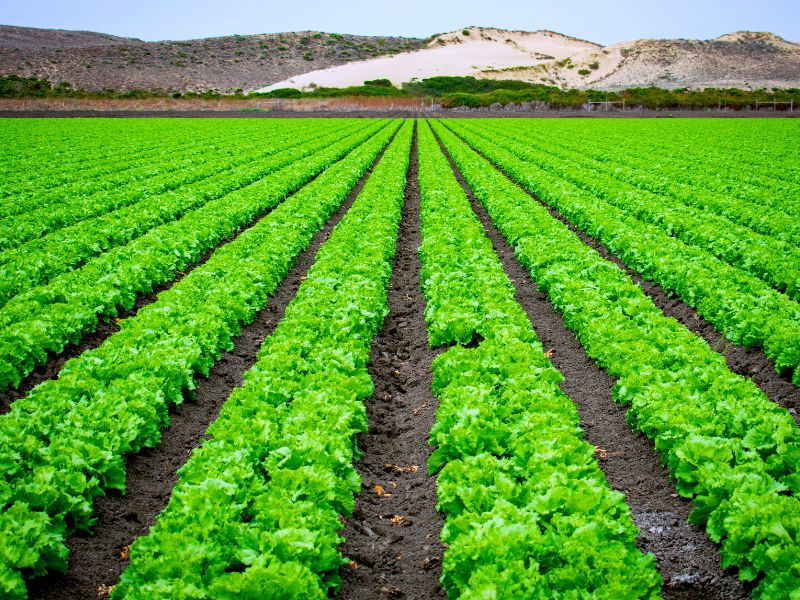
Monoculture, also known as crop specialization, is a type of farming that involves planting and replanting the same single crop species year-round. Farmers tend to select a crop that will thrive best in the local environment, and dedicate a specific field to that one crop to maximize production or efficiency. Some crops, such as cereals, may have an increased rate of production when grown as monocultures.
Farmers may also choose to plant a single crop because they are generally easier to manage than fields that contain multiple types of crops (polycultures). Growing a single crop species suggests a uniform approach to soil preparation and maintenance, while maintenance for polyculture systems will require more labor, knowledge, and resources.
Monoculture Farming

There are several drawbacks associated with single-crop agriculture. Firstly, reusing the same soil for a single crop, instead of switching between a variety of crops, increases the chances of plant pathogens and diseases. Monoculture ecosystems lack the plant and animal species that can help limit the spread of disease in crops. Disease outbreaks among plants degrade the quality of the surrounding soil quality, making it less fruitful.
Biologically diverse ecosystems tend to produce plants with greater resistance to disease by attracting beneficial bacteria, adding nutrients into the surrounding soil and defend crops against various pathogens and abiotic stress.
Disadvantages Of Monoculture Farming
Monocultures must rely on pesticides and herbicides to replicate the natural defenses and protection found in more diverse crop ecosystems.

In some cases, pesticides and herbicides contaminate soil, crops, and nearby water systems. Though pesticides and herbicides can kill insects and weeds that harm plant health, pesticides and herbicides can also can also be toxic to the crops themselves, and other surrounding organisms- including birds, fish, and microscopic bacteria. Some of these surrounding lifeforms can be beneficial to crops, and losing them harms crop ecosystems and yield quality.
Leave a Reply